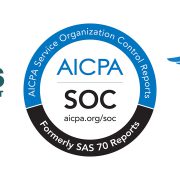Choosing colocation service providers means knowing the propensity of natural disasters where data centers are located. Fortunately for Utah Fibernet seekers, this state is ranked by WalletHub as the third safest in the nation. (For those interested, Utah is also the second safest state for “workplace safety” and fourth safest for “driving safety.”) Knowing how likely a natural disaster is can play a critical role in choosing your data center location. Data centers, including colocation data centers, are built with safeguarding akin to Fort Knox, but nothing is truly indestructible. Clients can find more security in a data center than they could manage on their own—unless you have a really big budget and safety know-how—which is why colocation data centers are so desirable.
In Utah, there are still possibilities for natural disasters just like there are anywhere else. You’ll find preparedness information on the State of Utah website, and it’s worth knowing what the most “common” natural disasters may be, starting with earthquakes. You might not think “earthquakes” when you hear Utah, but the state is located along a major fault line. This means the earth’s crust isn’t very strong in this area, and sometimes fault lines are caused by a geologic break after mountain blocks have been bolstered up naturally in comparison to dipping valleys—which pretty much sums up the landscape of many places in Utah.
Not All “Natural” Things are Good
Spanning from Malad City to Fayette, Utah County boasts a big fault line that runs below a number of residential and business areas. Currently, geologists say that it’s feasible for a 7.5 earthquake to hit this area. The good news is that there are many things businesses can do to prepare for an earthquake, and a good colocation data center will be built to withstand such a disaster. However, earthquakes don’t “just” cause structural damage. They also often leak during power outages, which is why colocation data centers should feature redundant power with generators.
Another possible natural disaster in the state is floods. Flash floods are a potential problem in every single state, but they’re relatively more common in Utah than in some other states. Obviously, the areas with the biggest vulnerabilities are at the bottom of steep slopes, close to stream valleys, and near any natural water source. Hopefully, your colocation service provider built a data center that’s not in a high-risk flood zone (feel free to ask them). It’s best to physically visit the data center if possible to see just what kind of preparation work has been made in case of a flood.
Where the Wild Things Are: Utah
Floods and landslides go hand in hand. Again, landslides are most common near steep slopes. You don’t want a data center nestled at the base of the Wasatch Mountains, for example. Similar precautions should be made for landslides, including avenues for guiding water away from the data center. There are also wildfires to contend with. A state rich in natural beauty and known for sometimes sizzling summers of course can be vulnerable to wildfires. Data centers should be “fireproof” and located in an area far from “kindling” (even if it means the outside landscaping is rather boring).
Finally, there is the risk of an avalanche. A state beloved for skiing, snowboarding, and other winter sports is going to come with an avalanche risk. These can be particularly troublesome during a quick spring thaw, but shouldn’t impact your data center unless it’s located in a mountainous region. There are avalanche zones in Utah, and of course, your data center should not be located in one of these.
Compared to most other states, Utah doesn’t face many natural disasters. There are also regions of the state more prone to natural disasters than others. When shopping around for a colocation provider, make sure to ask the actual address of the data center, if there have been any natural disasters in recent history, and do your due diligence to make sure the likelihood of a natural disaster is slim. There are never any guarantees, but it’s not very wise to choose a colocation provider with a data center in the middle of the woods (wildfires), in a ski resort town (avalanches), or at the bottom of a slope (floods and landslides). Common sense can go a long way—as can researching geographic locations.


